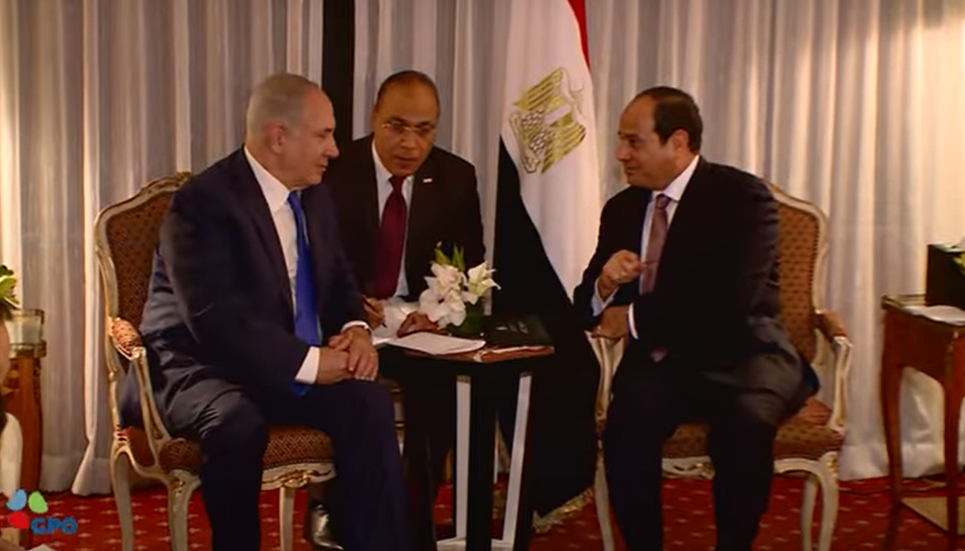At a press conference on September 2, Prime Minister Netanyahu announced Israel’s refusal to withdraw from the “Philadelphia Corridor” as part of the first phase of the hostage deal.
This statement provoked significant anger within the Egyptian leadership, exacerbating tensions that had already been rising since the outbreak of the conflict.
In response, the Egyptian Ministry of Foreign Affairs condemned Netanyahu’s remarks, and the Egyptian media mobilized former senior officials to defend President Abdel Fattah al-Sisi, denying the existence of active smuggling tunnels under the “Philadelphia Corridor” that allegedly facilitate the transfer of weapons from Sinai to Hamas in Gaza.
Egypt asserts that, following al-Sisi’s election as president, he ordered the tunnels to be blocked, effectively ending smuggling into Gaza.
Egypt claims that Netanyahu’s allegations are baseless and intended to derail the hostage deal.
However, Israeli security officials contend that senior Egyptian officials and military officers have long been involved in the smuggling industry, benefiting financially from Hamas.
They claim that smuggling is conducted not only through the tunnels but also via the Rafah crossing.
According to these officials, the smuggling operations are overseen by businessman Ibrahim El-Arjani, a prominent member of the Sinai Bedouin tribes and a business partner of Mahmoud al-Sisi, the president’s son, who holds a senior position in Egyptian intelligence.
Since the war began, Egypt has closed its border with Gaza, reinforcing it with significant military forces to prevent tens of thousands of Palestinians from the Rafah area from entering Egyptian territory.
The IDF has upheld its commitment to Egypt by not allowing any Palestinians to cross into Egypt.
Despite the high tensions, political officials in Jerusalem maintain that the peace agreement between Israel and Egypt is not in jeopardy, as both nations have a strategic interest in preserving it.
However, they express concern about Egypt’s unprecedented military build-up and the construction of tunnels and bridges over the Suez Canal, which could enable rapid deployment of military forces to the Sinai Peninsula and across the border with Israel.
Officials in Jerusalem also believe Egypt is acting ungratefully, as Israel had allowed it, in a special gesture, to deploy large military forces in Sinai to combat ISIS terrorists, despite the restrictions imposed by the peace agreement.
According to foreign sources, Israel directly assisted the Egyptian army in its fight against ISIS in Sinai, providing drone support and intelligence on terrorist hideouts.
Israeli security officials note that Egypt’s attitude towards Hamas shifted in 2017 after Yahya Sinwar was elected as the leader of the organization in Gaza.
Previously, Hamas operatives in Gaza had aided ISIS terrorists and the Muslim Brotherhood’s military wing in attacks against Egyptian targets.
Egyptian intelligence chief Abbas Kamel struck a deal with Sinwar, ending Hamas’s support for terrorist organizations in Egypt.
In return, Egypt has kept the Rafah crossing open for the continuous movement of people and goods from Gaza, seven days a week.
Since then, Egypt has preferred to maintain a relationship with Hamas, ensuring the group does not resume its terrorist activities against the Egyptian regime.
Egypt is unwilling to confront Hamas, and Sinwar trusts Egypt to negotiate with Israel on the Rafah crossing and the “Philadelphia Corridor.”
Egypt has blocked any American proposal for an Israeli military presence in the “Philadelphia Corridor,” even rejecting the installation of sensors to prevent smuggling.
Egypt demands a complete withdrawal of IDF forces from the area.
It appears that only a hostage deal and a ceasefire in Gaza could reduce tensions between the two countries, but such an agreement does not seem likely in the near future.




